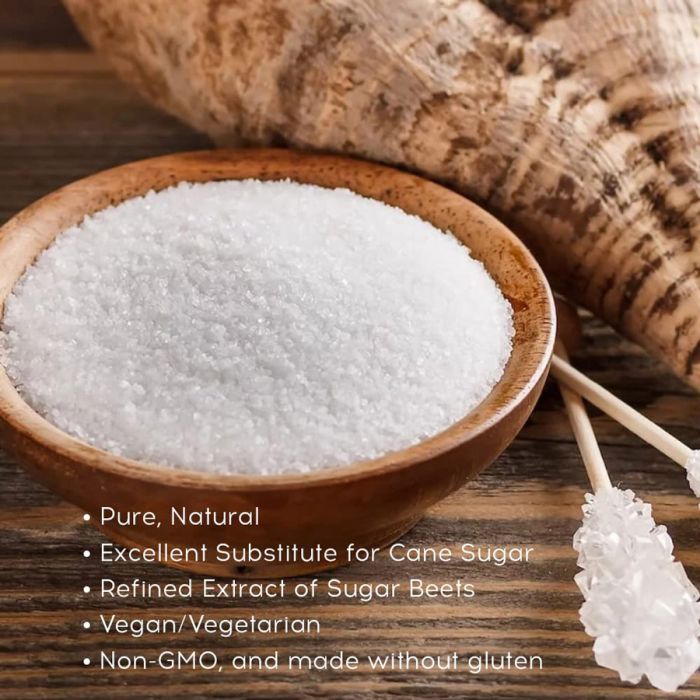The debate on beet sugar vs cane sugar often centers around refining techniques and composition.
The debate on beet sugar vs cane sugar often centers around refining techniques and composition.
Blog Article
A Comprehensive Consider the Benefits and Uses of Beet Sugar Vs Cane Sugar for Sweetening Options
In the realm of sweetening, both beet sugar and cane sugar offer distinctive benefits and cooking duties, albeit with comparable nutritional accounts. While beet sugar flaunts a neutral taste ideal for various recipes, cane sugar enriches recipes with subtle sugar touches. The environmental factors to consider of their production are starkly various, repainting an intricate photo of sustainability. This association invites a much deeper expedition right into just how each sugar effects not only our tastes but additionally the planet.
Beginnings and Handling Techniques of Beet Sugar and Cane Sugar
Beet sugar and cane sugar, two predominant sweeteners, stem from very unique plants and undergo various processing techniques. Beet sugar is extracted from the sugar beet, an origin veggie, mainly grown in cooler climates.
Conversely, cane sugar comes from the sugarcane plant, an exotic yard. Its processing begins with gathering the cane, squashing it to get the juice, and after that steaming this liquid to form sugar crystals.
Nutritional Contrast: Beet Sugar Versus Cane Sugar

When comparing the dietary material of beet sugar and cane sugar, it becomes evident that both kinds give a similar power value. Each provides about 4 calories per gram, primarily as sucrose, which is a straightforward carbohydrate. This similarity includes their lack of necessary nutrients; neither sort of sugar consists of considerable amounts of vitamins or minerals. Both beet and cane sugar are 99.9% pure sucrose, making them basically identical in regards to calorie web content and nutritional account.
Nonetheless, minor differences might develop from the minimal micronutrient that remain after processing, though these are as well small to influence overall wellness. For example, cane sugar can keep traces of molasses, relying on the level of refining, which may include small amounts of calcium, iron, and potassium. Beet sugar, on the various other hand, generally goes through a procedure that removes these micronutrient more extensively, leading to an even purer kind of sucrose.
Culinary Makes Use Of and Flavor Profiles
Regardless of their nutritional similarities, beet sugar and cane sugar diverge significantly in their culinary applications and taste subtleties. Beet sugar, derived from sugar beets, generally has a very neutral taste, making it a preferred choice in baking where it perfectly integrates discover this info here without changing the flavor profile of various other components.
Chefs and home cooks alike choose sugars based on these attributes. While both sugars work similarly in terms of sweet taste and physical homes, the mild taste distinction can influence the end result of a dish considerably, leading the selection in between beet and cane sugar based upon the desired outcome in culinary creations.
Health Effects of Consuming Beet and Cane Sugars
Although beet sugar and cane sugar are commonly utilized mutually in food preparation and cooking, their health and wellness effects can differ discreetly as a result of their unique handling techniques. Both sugars supply regarding the same amount of calories and carbohydrates per tsp, basically providing similar power contributions without any inherent nutritional advantages. The refining process for each sugar can modify the presence of trace minerals and substances, although these variants are normally minimal and not significant enough to affect one's health and wellness meaningfully.
The primary wellness interest in both kinds of sugar pertains to their contribution to too much calorie intake, potentially resulting in weight gain, and involved conditions like type 2 diabetes and heart problem when consumed in big quantities. As a result, no matter the source, small amounts is crucial in consuming beet or cane sugars. Wellness experts why not try this out commonly advise restricting sugarcoated in any kind of type to keep optimum wellness results.
Environmental Influence and Sustainability of Sugar Manufacturing

On the other hand, sugar beet handling tends to create big amounts of pulp waste, which can be repurposed as animal feed or transformed into bioenergy, consequently minimizing some environmental influences (beet sugar vs cane sugar). Eventually, the sustainability of sugar production rests on embracing even more environmentally friendly farming methods and waste management methods to lower the environmental footprint of both sugar types

Verdict
Beet Web Site sugar is significant for its sustainability and neutral taste, whereas cane sugar is prized for its abundant taste. Customers should take into consideration these factors, along with the environmental ramifications of sugar manufacturing, to make educated options about sugar consumption that line up with culinary requirements and honest worths.
Report this page